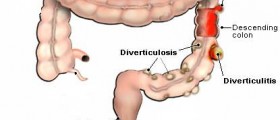
A Brief Introduction
Nauseais a condition which cannot be defined too sharply. It is instead pinned down as a common condition of a number of diseases and health disorders.
Generally it is described as an unease and discomfort of the stomach which is frequently (even though it doesn't have to be) followed by vomiting. There is a number of causes which may be the triggers of nausea, and this article explores and takes a closer look at the most common amongst them.
What does feeling nauseous feellike?
Generally,there are two types of nausea.... short-term nausea and long-term nausea. And the causes of each type vary respectively.
A case of short-term nausea is fairly naive and there are no serious underlying causes. It may be triggered by sea sickness, eating certain types of food, storing perfumes, phobias (i.e. of heights, water, etc.), and so forth.
Dissimilarly, a case of long-term nausea is normally caused by other types of serious health conditions. And those would be the topic of the remainder of this article.
First off the list would be fibromyalgia. This is a rheumatoid condition which is caused by pain in muscles and joints. This type of pain is chronic and it is further increased by touch and movement. It is sometimes confused for arthritis since it shares many of the similar symptoms. It is more common in women than men, and in people above 60 years of age.
Nextly, Gastroenteritis. This is a type of an inflammation of the stomach which is caused by bacterial infection. There is no common age group which is prone to this disease, yet it is most frequent among children and young adults. Its causes are mostly food poisoning. The symptoms: dehydration, diarrhea, loss of appetite, and so forth.
Pregnancy is quite possibly the most common and natural of setting of nausea. This is a symptom which may last all day, but it is still more common in the morning – thus dubbed: the morning sickness. Its cause in this case may be unknown, but there are hints at that it might be due to the increased sensitivity to odors (which is triggered by certain hormonal changes).
Ear infections are a common setting for nausea, too. It is, in fact, a typical symptom of the infection/inflammation of the middle ear. These infections may be triggered by various kinds of bacteria and viruses. Other symptoms may include: ear pain, bleeding in the ears, chills, vertigo, fever, and so forth.
Next off, a persons who wouldn't like to get nauseous should most definitely avoid alcoholism. This is because sickness and nausea are the two most typical symptoms of alcoholism. Nausea may also occur amongst the withdrawal and detox symptoms.
Other conditions which may trigger nausea include: liver and gall bladder diseases, cancer, ulcer, gastritis and insomnia, to name a few.
Conclusively, while short-term nausea isn't that big of a deal at all, its long-term counterpart should most definitely receive some amount of medical attention.

















Your thoughts on this
Loading...